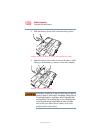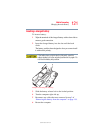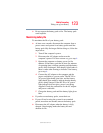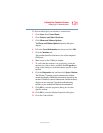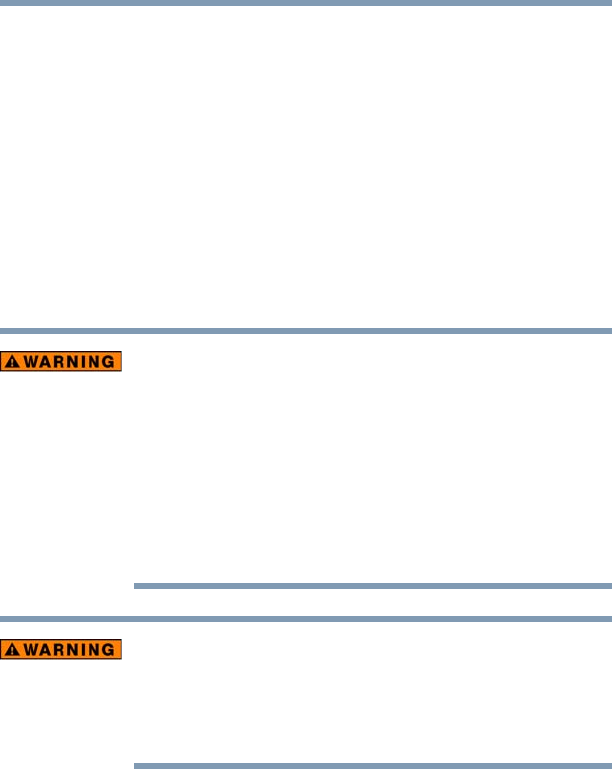
124
Mobile Computing
Disposing of used batteries
5.375 x 8.375 ver 2.3.2
❖ If you are not going to use the computer for more than
eight hours, disconnect the AC adapter.
❖ Store spare battery packs in a cool dry place out of direct
sunlight.
Disposing of used batteries
The life of a battery pack depends on usage. When the battery
pack needs replacing, the main battery light flashes amber
shortly after you have fully recharged the battery.
You must discard a battery if it becomes damaged.
Never attempt to dispose of a battery pack by burning or by
throwing it into a fire, and never allow exposure to a heating
apparatus (e.g., microwave oven). Heat can cause a battery
pack to explode and possibly cause serious injury.
Always dispose of used battery packs in compliance with all
applicable laws and regulations. Put insulating tape, such as
cellophane tape, on the electrode during transportation to
avoid a possible short circuit, fire or electric shock. Failure to
do so could possibly result in serious injury.
Always use the battery pack supplied as an accessory or an
equivalent battery pack specified in the User's Manual. Other
battery packs have different voltage and terminal polarities.
Use of non-conforming battery packs could generate smoke or
cause fire or rupture, possibly resulting in serious injury.
After repeated use, the batteries will finally lose their ability
to hold a charge and you will need to replace them. Under
certain applicable laws and regulations, it may be illegal to
dispose of old batteries by placing them in the trash.
Please be kind to our shared environment. Check with your
local government authority for details regarding where to
recycle old batteries or how to dispose of them properly. If







